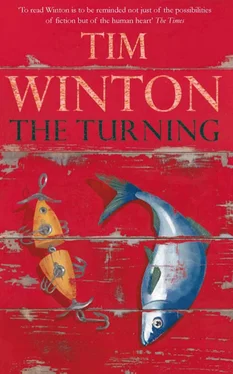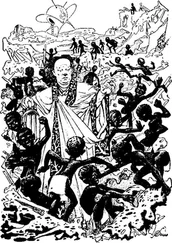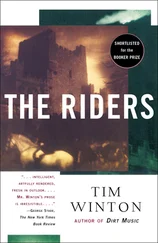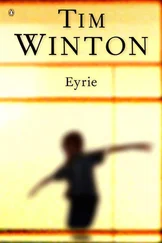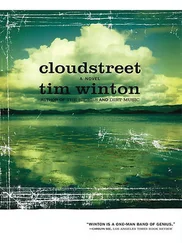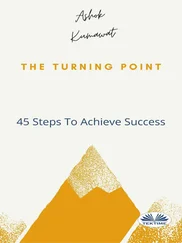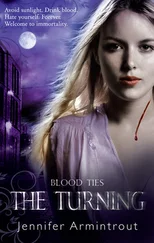I vacuumed and raked feverishly. When I got to the bedroom, the cats who’d thus far evaded us leapt out from behind the curtains. They were sulking great Persians. I threw down the nozzle and chased them out of the room.
My mother was still in the kitchen.
Mum, I said. What did the note say?
Did you leave that machine going?
Was it about me? Does she suspect me?
You? Don’t be stupid.
I haven’t been here for months.
Turn that thing off.
No, I said feeling ridiculous. It doesn’t matter, I’m going back.
Don’t forget those curtains!
I gave the bedroom curtains a good going over. I could never understand how so much cat hair could accumulate in a week.
Mum came in while I was on my knees still vacuuming the flounces and folds of the patchwork quilt.
Windex? she said.
I pointed to the dressing table. She lingered. I turned the machine off.
What were you on about before?
Honestly, Mum, why didn’t we just give the place a light go through? Or better, just take the dough and split.
Because it would look like an admission of guilt.
Shit.
Language.
But this won’t convince her, Mum.
No, probably not.
You should report them missing yourself. Ask them to search our place. Force the issue. There’s nothing that can come of it.
Except talk. Imagine the talk. I’d lose the rest of my jobs.
She was shining with sweat. Her hair had tightened into damp poodle curls. She had been so pretty once.
So you’re stuffed either way.
Love, we grin and bear it.
I shook my head. I hit the button on the vac and blitzed the carpet beneath the bed. I could sense her still behind me, waiting to say something but I pretended to be absorbed in the work. Up at the head of the bed there was a nest of Red Tulip chocolate wrappers. They made a slurping noise as they were sucked into the machine. I only had half of them up when the ping of something hard racketing along the pipe made me turn my head.
Mum stepped on the button. The machine wound down to silence.
Money, probably, I murmured.
Let’s open it up.
I cracked the hatch and felt around in the horrible gullet of the dustbag. From wads of lint and hair and dirt came an earring.
Five hundred dollars? she muttered. That’s rich.
I didn’t know anything about jewellery. I shrugged, gave it to her.
Look under there. The other one’s bound to be close by.
I found it hard up against the skirting board.
She’s left them on the pillow, she said. Forgotten about them. She’s come in and swept them off as she got into bed. She hasn’t even looked. That’s all it was, just carelessness.
All this fake outrage. She couldn’t be bothered going to the cops because they’re cheap? Is that it?
I don’t know.
It wasn’t important.
It was important to me.
Well, you’ve cleared your name. That’s something.
She shook her head with a furious smile.
Why not? I asked. Show her what we found, what she was too lazy to look for. Show her where they were.
All she has to say is that she made me guilty enough to give them back. That I just wanted to keep the job. To save my good name. Vic, that’s all I’ve got — my good name. These people, they can say anything they like. You can’t fight back.
I looked away at the floor. I heard her blow her nose. I was powerless to defend her. It was the lowest feeling.
I’ll finish the kitchen, she said. Ten minutes.
I vacuumed the rest of the bedroom. The earrings lay on the bed. I looked at them. They were pretty enough but I was no judge. Perhaps their real value was sentimental. I snatched them up from the quilt and took them into the laundry. I chucked them into the cat tray. Let her find them there if she cared to look.
In the kitchen Mum was ready to go. The rags and bottles were in the bucket. She walked a towel across the floor and that was it.
What about the money? I said, looking at the scrubbed bench.
I’m worth more, she said.
You’re not taking it?
No.
I smiled and shook my head.
You forgot the vacuum, she said.
Oh, yeah. Right.
I went back to the laundry, knelt at the catbox and picked out the earrings. I dusted them off on my sweaty shirt. In my palm they weighed nothing. I grabbed the Electrolux from the bedroom and made my way out again. In the kitchen I put the earrings beside the unstrung key and the thin envelope of money.
My mother stood silhouetted in the open doorway. It seemed that the very light of day was pouring out through her limbs. I had my breath back. I followed her into the hot afternoon.
IT TAKES A WEEK OR MORE before Brakey admits it to himself — he’s watching her. The only reason he comes down here amongst the peppermints at sundown is to see Agnes Larwood light her kero lamp onshore, take up her gidgie and begin wading the shallows in search of cobbler. Some evenings she digs for cockles if the tide is low enough, and he has seen her scooping crabs over on the flats, but mostly she’s out here with the gidgie looking for cobbler to spear.
He lurks back in the gloom of the trees, the last of the sun in the hills behind him, while she moves slowly through the water with the lantern held away from her, out to the side and slightly ahead. Orange light glows on her calves. She wears a tank top and boardshorts. Her tennis shoes look huge and white underwater. She travels so cautiously that the water folds away from her shins in silence. Behind her, as darkness falls, the lights of town show up across the broad harbour and her silhouette becomes more golden and less flat in the light of her lamp. Now and then she goes all still and he observes the barely perceptible drawing back of her arm, the spear almost invisible in her hand. Suddenly the water erupts at her feet and a second later the sound of the splash carries to him. In the lampglow the writhing catfish comes up skewered shiny-black and she slops to shore to kill it and pull the venomous spines from its head with pliers. She slips the fish into the bag slung across her shoulder, looks up a moment so that her face is illuminated and her eyes seem to be looking straight into his, before straightening and turning back to the water, lamp in hand.
Same as every other night Brakey stops following when the peppermint grove peters into a tangle of teatrees and bamboo. To keep a parallel course with her through that lot would be a noisy and perilous business in the dark, so he squats to watch her work her way from view, a silhouette for a time, then a bud of light and then she’s gone behind the curve of the point. He feels a pang of loss. He just can’t believe this is happening to him. He’s known Agnes Larwood all his life and now he can’t keep his eyes off her. It’s as though he’s turned into some sort of perv. He sat next to Agnes a whole year in primary school. She lives thirty yards away. They’re on the same damn bus every morning and now he’s noticing her. She’s not beautiful, not like her older sister, Margaret, the one who ran away to the city with the bloke from the superworks. Maybe you could call Agnes pretty but what does that really mean? It doesn’t explain the sudden hunger, this terrible fascination. A fortnight ago she was bog-ordinary. Agnes bloody Larwood. But tonight his blood is charging, it whacks in him like something trapped and it’s been this way for a solid week.
He hunkers down in the dark to wait. Leaf litter from the peppermints smells medicinal. Way out across the water a car whines along the Angelus shore.
Agnes. Agnes? Agnes.
While she’s gone he pictures her in his head. Thin arms and legs, brown from summer. Short hair, also brown. Or brownish. An even sort of face with, yes, regular teeth from the few recent memories of her smiling or even speaking. Somehow in his mind she still has her milk teeth, for that’s when he recalls her most vividly when they were younger. Even. Regular. Brownish. Pretty. Ish.
Читать дальше
